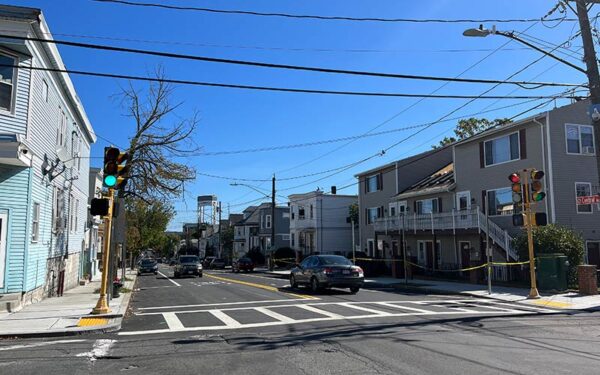UPDATE: Victory! On April 11, the Public Utilities Commission announced that it will not issue any contract for a new natural gas storage facility in Maine. The Commission agreed with CLF’s and its staff’s position that the costs of building new natural gas storage facilities would far outweigh any speculative benefits for Maine people. For now at least, Mainers’ hard-earned dollars will stay where they belong: in our pockets and not paying natural gas developers for expensive construction that we simply don’t need.
Maine Considers New Natural Gas Infrastructure (Again)
The Maine Public Utilities Commission will soon deliberate whether to dump half a billion dollars of Maine consumers’ money into development of more natural gas infrastructure. CLF opposes forcing Maine families and businesses to subsidize the cost of risky new investments in fossil fuel infrastructure – this time new storage facilities for liquefied natural gas. Multiple studies – including this latest one – have shown that there is no need for it.
What’s more, the proposed projects are very expensive with only speculative benefits that may not materialize at all. Mainers – you and me and everyone else who pays a natural gas or electric bill – shouldn’t be forced to foot the bill for such risky ventures.
CLF has been arguing these points in the current Commission proceedings. Fortunately, we found out this week that Commission staff agree! In the staff’s Examiner’s Report, which is a recommendation to the Commission itself, they firmly and categorically concluded that none of the proposed projects are commercially reasonable or in the public interest, for many of the same reasons that CLF opposes them.
While that should sound the death knell for the LNG storage projects under consideration, the Commissioners don’t always follow their staff’s recommendations. So we must still be diligent in working to stop these unwise, unnecessary, and risky new gas ventures.
Sound Familiar?
It was just a few months ago that the Maine Commission (along with other states in New England) halted progress of the regional Access Northeast natural gas pipeline expansion – effectively putting an end to that project for the time being. The pending case in Maine is proceeding under the same law, with the same underlying premise and goals: spurred by Big Gas’s persistent myth that New England doesn’t have enough natural gas to meet demand for heat and power in winter months, the idea is that building more infrastructure will increase natural gas and electricity reliability and decrease costs for customers.
The highly problematic funding scheme for this go around is also the same: Maine law allows the costs of new natural gas infrastructure to be passed on to natural gas and electricity customers, the second part being unprecedented up till now.
That Old Big Gas Myth is Getting Tired
But this isn’t quite déjà vu all over again – this time, the Commission is considering proposals for installation of liquefied natural gas (LNG) storage capacity, rather than gas pipeline capacity. Now, as noted above and explained more fully below, CLF opposes construction of new LNG storage because we don’t need it and because you and I shouldn’t be forced to pay for it. But it’s worth fleshing out some of the differences between storage and pipelines.
Big Gas’s favorite narrative about natural gas shortages in New England goes like this: on the coldest days of winter, Mainers use the most natural gas to heat their homes and businesses. Meanwhile, on those same days, power plants also need natural gas to produce electricity. According to Big Gas, this all adds up to too much demand and not enough supply. This, they claim, could lead not only to spiking electricity prices, but even rolling blackouts.
CLF has debunked these fake claims before – most recently here. The truth is that, even if there were such a supply problem, pipeline expansions are a completely inefficient and impractical means of addressing it. Once built, a pipeline provides additional natural gas 365 days a year. That means we would all be paying more in our electric bills year-round (for decades) to address an issue that only happens on a handful of the coldest days of winter.
Storage is a Better Solution – But We Don’t Need More of It
Some argue that storage provides a more targeted solution. You can fill a storage facility when prices are low (say, in summer time when people aren’t heating their homes), and then disburse gas only on those winter days when prices are peaking and it’s really needed.
CLF acknowledges that, generally speaking, storage facilities are better than pipelines at meeting increased demand on those few coldest days of the winter. But we dispute the need to build new storage facilities. Here’s why:
Electricity prices are down. Natural gas demand is projected to decline within the next ten years or so, thanks, in part, to our region’s commitment to reducing climate-warming emissions partly by ramping up energy efficiency and renewable sources of energy (think solar and wind).
And what’s more, New England already has all the natural gas infrastructure that we need, as Commission staff acknowledged in their Examiner’s Report. A new pipeline came online late last year, and two more are planned to be in service this fall. So more natural gas is already on its way into the region. We’ve also got plenty of LNG import terminals that receive global shipments. In addition, the gas utility companies themselves already have a number of under-utilized storage facilities.
CLF thinks increased use and better management of New England’s existing gas supply, storage, and delivery infrastructure is the best (and most cost-effective) way to address those few peak periods of natural gas demand that sometimes occur during the winter.
Where Does That Leave Us in Maine?
The Maine storage proceeding is moving steadily forward. At the end of last year, the Commission’s financial consultant concluded that only under best case (and highly unrealistic) scenarios would any of the proposed storage projects benefit Mainers. And, as noted above, in big news this week, Commission staff agreed that the proposed facilities are way too risky for Maine! They concluded that the State doesn’t need the extra storage, that the benefits are uncertain, and that the projects just aren’t in the best interest of Mainers. They officially recommended that the Commission not move forward with any new LNG facility.
This is an excellent and promising development. Now we will be on watch to make sure that the Commission does the right thing in its final deliberations in April – and finally shuts down Big Gas’s myths for good.



